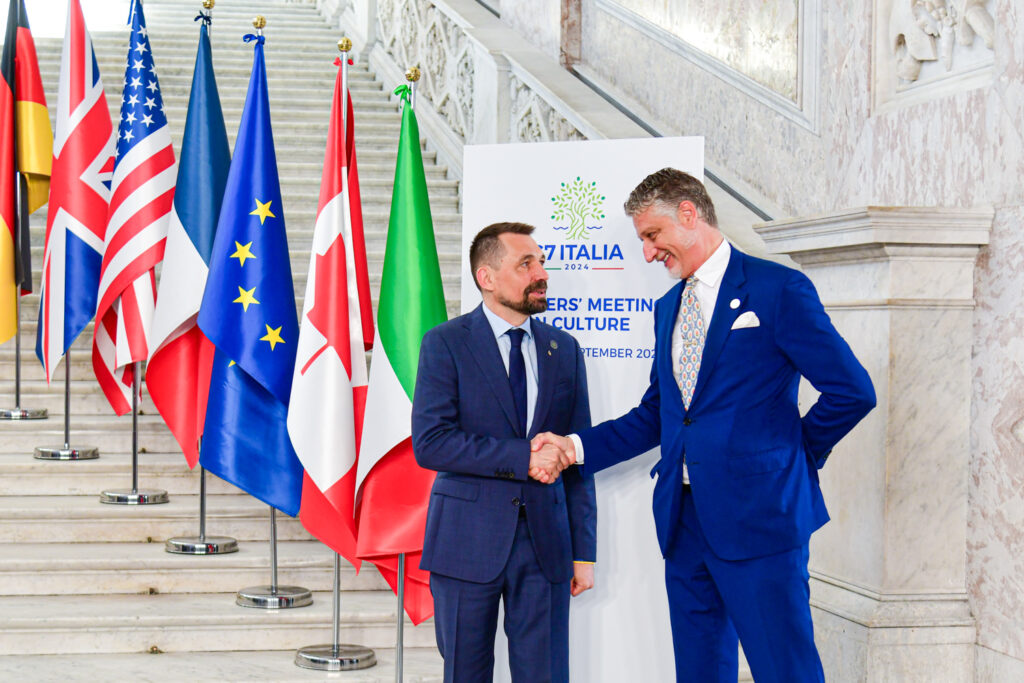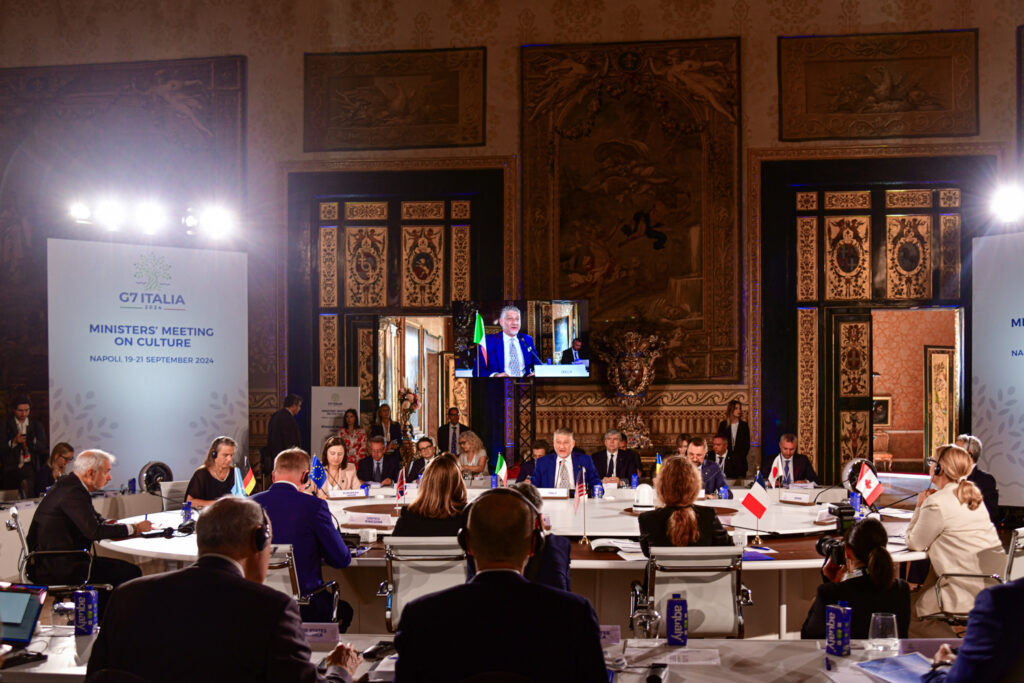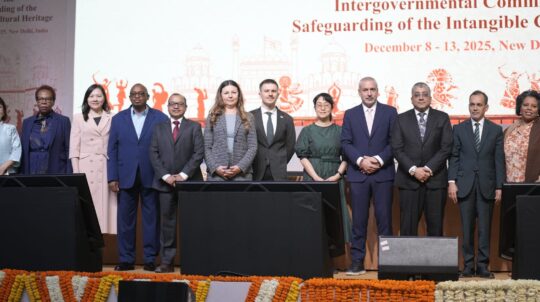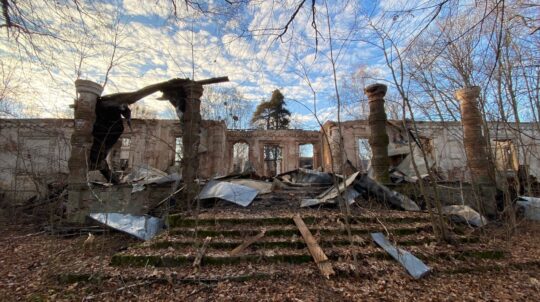From September 19 to 21, the G7 Culture Ministerial is taking place in Naples. The main goal of the event is to discuss the development and protection of culture as a global public good and a crucial catalyst for a sustainable future.

The main focus of the event is the protection of cultural heritage from modern threats, including climate change, illicit trade in cultural property, and the impacts of armed conflicts. Special attention is also given to the revival of Ukrainian culture, which has been devastated by russia’s invasion.
Minister of Culture and Strategic Communications of Ukraine, Mykola Tochytskyi, emphasized that the war in Ukraine is “part of a larger battle for the right to be heard and remain a part of global civilization.”
“Supporting Ukraine’s cultural sector now is a contribution to our common cause. We need your help to restore what russia has destroyed and continues to destroy at this very moment. We all know very well that the war for identity, culture, and history is a war we cannot afford to lose. We must stand together in this fight because we are a powerful force. All of us together. Now, we can make culture a priority that deserves the same strategic significance as security,” emphasized Mykola Tochytskyi.

Additionally, at the summit, the Minister emphasized that the aggressor country is attempting not only to physically destroy Ukraine but also to erase its contribution to the shared European past from history. This strategy aims to rewrite historical narratives that have been shaped over centuries and to undermine the role of Ukraine and other nations in the development of global culture.
“But our shared history tells a different story. Ukraine has always been part of European and global culture. Our cultural ties with Italy, France, Germany, Scandinavian, Asian, and other countries date back to times when Moscow had not yet appeared on the world map. These ties highlight our common cultural past. We cannot allow it to be erased or rewritten,” added Mykola Tochytskyi.
Separately, the Minister acknowledged the invaluable support Ukraine has received from international partners. In turn, summit participants reaffirmed their commitment to continue assisting Ukraine, recognizing its cultural sector as an integral part of global development. They emphasized the need to preserve historical assets, restore what has been destroyed by the war, and create conditions for culture to thrive in the future.
As of September 2024, during the full-scale invasion, the following losses we have:
- 123 artists and cultural figures have been killed.
- 1,147 heritage sites have been destroyed or damaged.
- 2,044 cultural infrastructure sites have been destroyed or damaged.
- 2,123 cultural institutions have suspended their activities in the occupied territories.
- 500,000 museum artifacts have been evacuated.
- 1,700,000 museum items remain in the occupied territories.
Therefore, it is crucial to unite efforts with international partners to preserve Ukraine’s cultural identity and national heritage.

